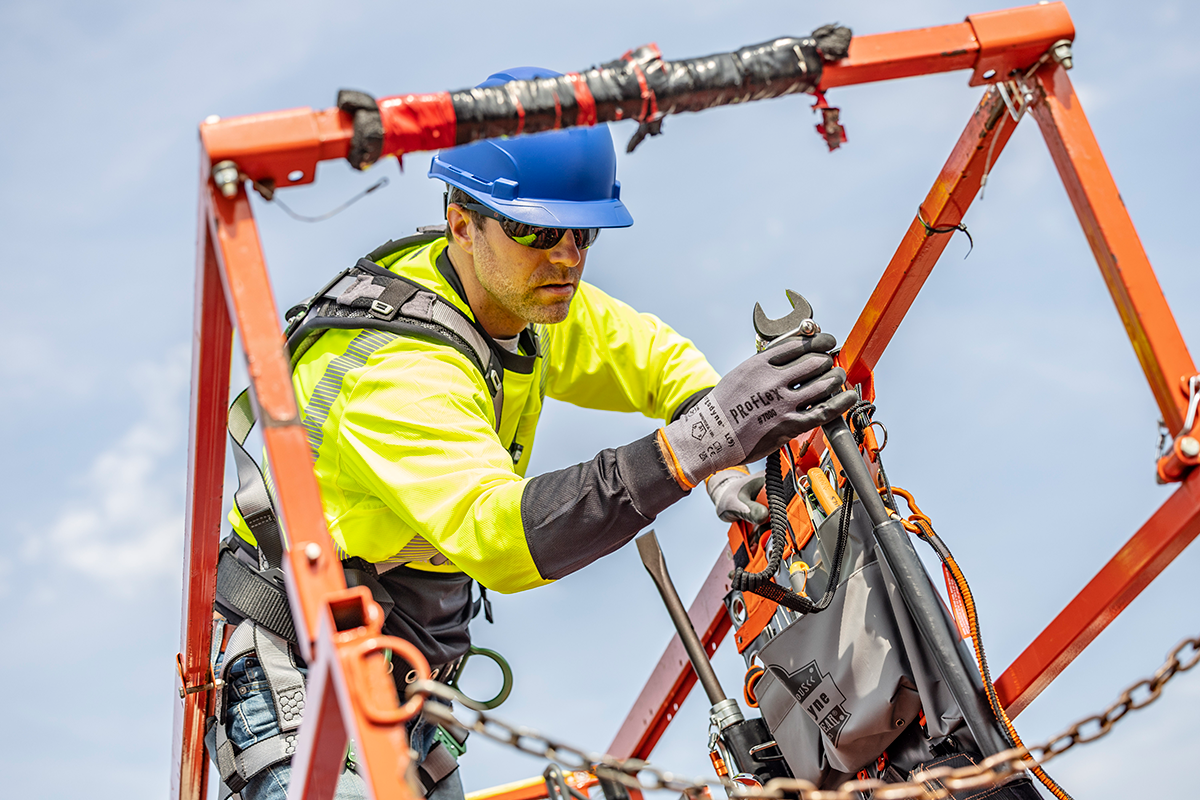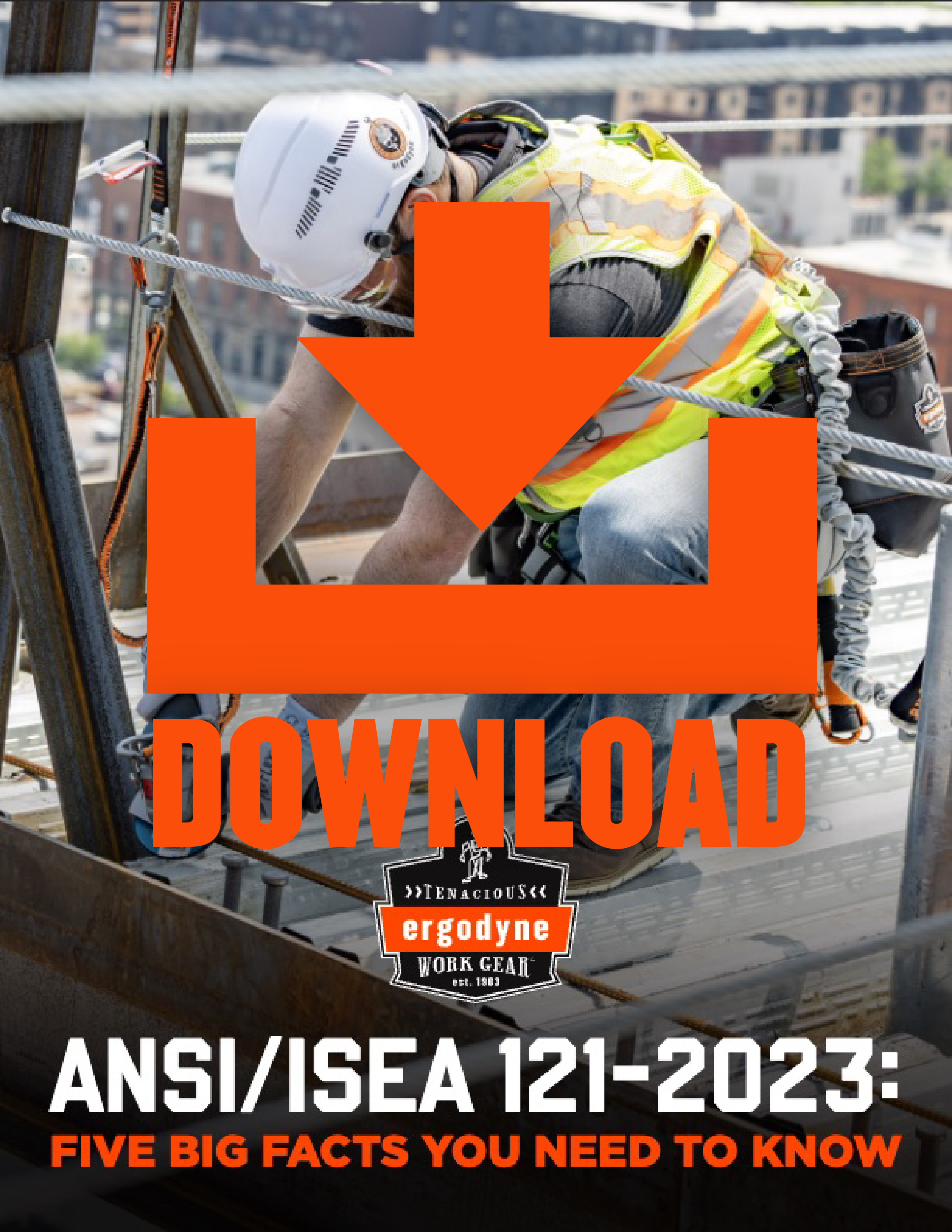Dropped Object Prevention and ANSI/ISEA 121-2023: Five Big Facts You Need to Know

Reviewed and updated in 2023 to account for new research and feedback from the field, ANSI/ISEA 121-2023 draws a clear line between proper tethering systems and DIY solutions like duct tape and rope.
Here’s a look at the five most important things you absolutely positively need to know about the “dropped objects standard”.
ONE: THIS IS A TOOL TETHERING STANDARD FOR DROPPED OBJECT PREVENTION
Think of ANSI/ISEA 121-2023 as the dropped object equivalent to ANSI Z359 for fall protection equipment. It creates a formal distinction of what constitutes a proper tethering system but DOES NOT specify proper use of the equipment or what needs to be tethered and when. Proper use of the equipment is specified by the manufacturer. When a worker needs to tether and what they need to tether is specified by a company or a regulatory body.
TWO: IT COVERS FOUR CATEGORIES OF EQUIPMENT
ANSI/ISEA 121-2023 is a standard that consists of design, testing, performance and labeling requirements for tool tethering systems and containers used to transport and secure tools and equipment at heights.
The four categories of equipment covered in this standard are:
THREE: THIS IS A VOLUNTARY CONSENSUS TOOL TETHERING STANDARD, NOT A REGULATION…
ANSI is a private, non-profit that oversees the development of voluntary standards in the U.S. ANSI/ISEA 121 was developed by the International Safety Equipment Association (ISEA), representing safety gear manufacturers.
Voluntary standards like this:
- Provide testing/design guidance for manufacturers
- Help safety pros set best practices on the job
- Do not legally require adoption
FOUR: … BUT OSHA IS WATCHING
Some folks think tool tethering isn’t required because OSHA hasn’t specifically mandated it. Here’s why that logic doesn’t hold:
- OSHA does require employers to address falling object hazards—across General Industry (1910.23, 1910.28) and Construction (1926.451, 1926.501, 1926.759) standards
- Prevention > Protection. Hard hats and debris nets help—but preventing drops in the first place is the gold standard
- ANSI/ISEA 121 defines the equipment that solves this problem—making it easier for OSHA to hold companies accountable under the General Duty Clause
FIVE: IT’S A U.S. STANDARD WITH WORLDWIDE IMPACT
Right now, there’s no international equivalent to ANSI/ISEA 121. Countries like Australia, Brazil, and those in the EU mandate protection from dropped objects but don’t spell out equipment requirements.
That’s likely to change.
ANSI/ISEA 121-2023 is poised to become a global model, spurring standards development in other countries. And as always, we’ll be on the front lines helping shape what’s next.
ANSI/ISEA 121-2023: A NEW STANDARD IN AT-HEIGHTS SAFETY
From our pioneering line of Squids Equipment and Tool Lanyards + Attachments to helping craft ANSI/ISEA 121-2023 to establish design, testing and labeling requirements for dropped object prevention solutions, we’re proud to lead the way. But there’s still work to do, and it can’t be done without your help.


